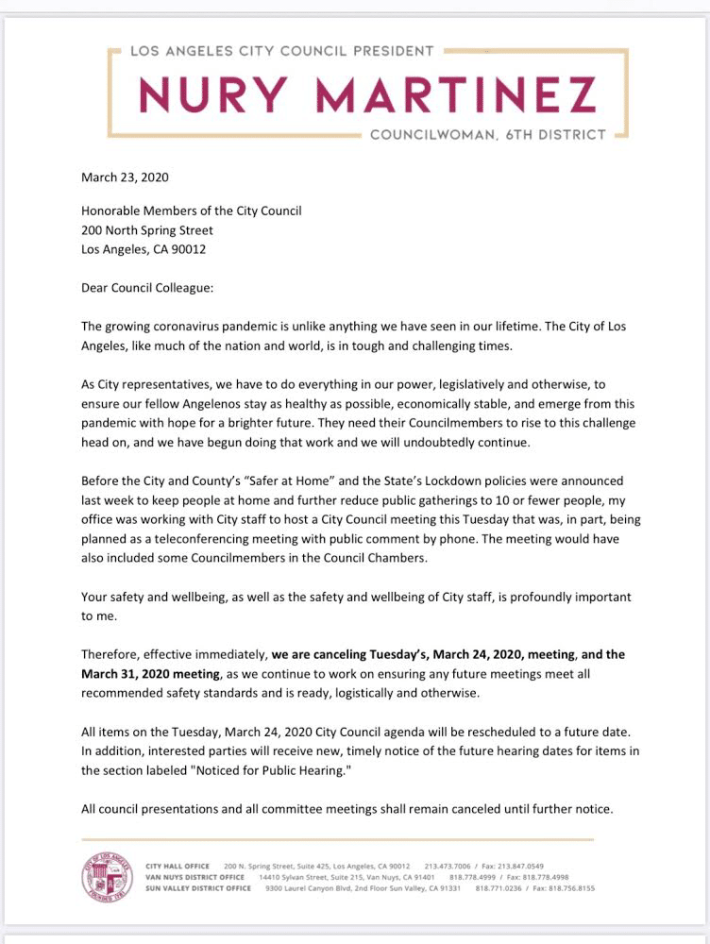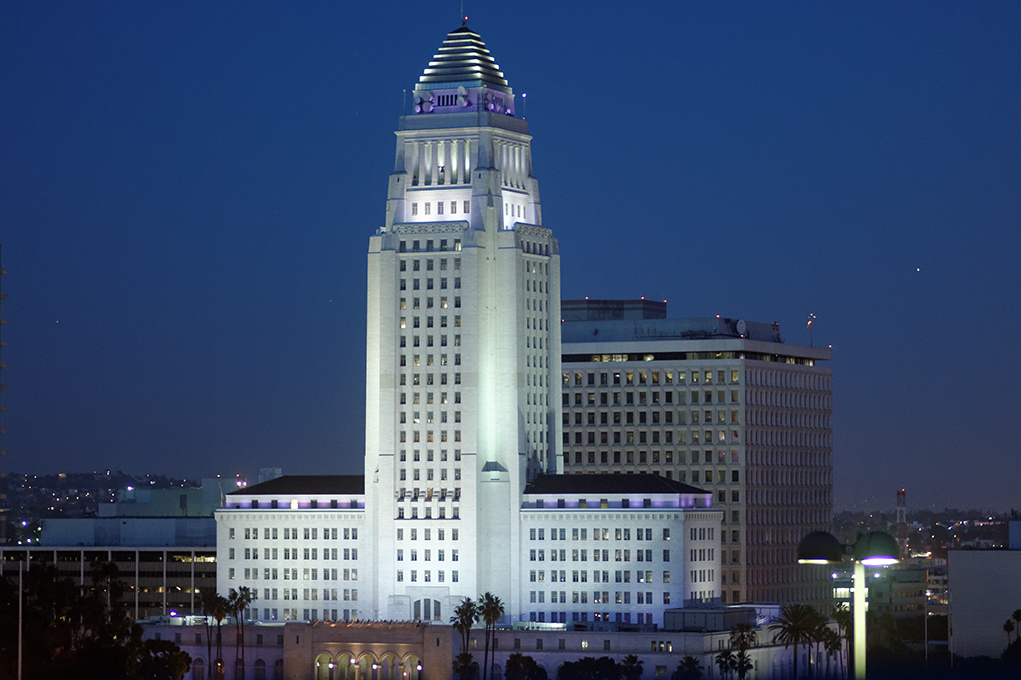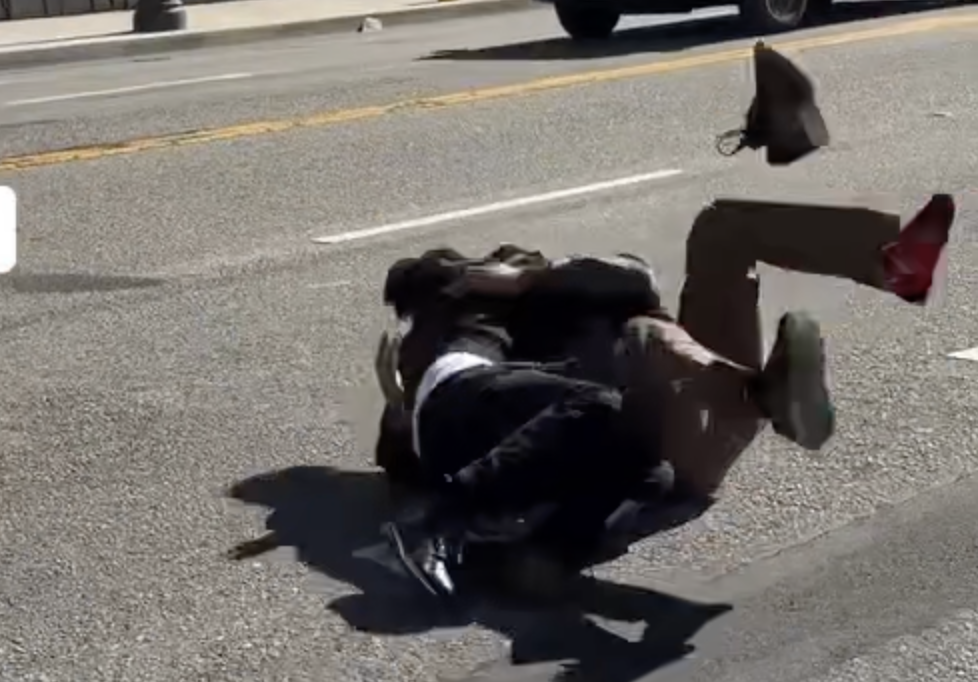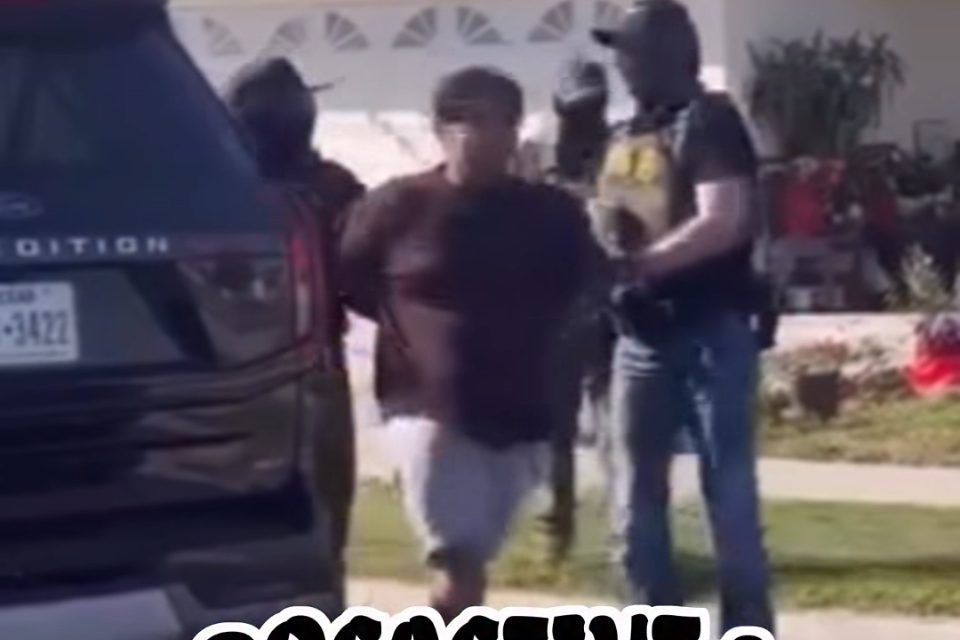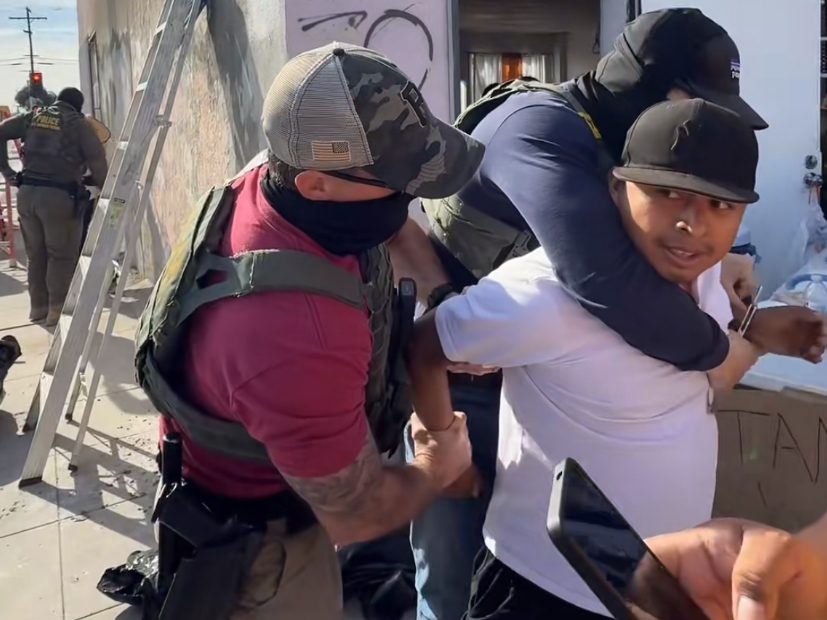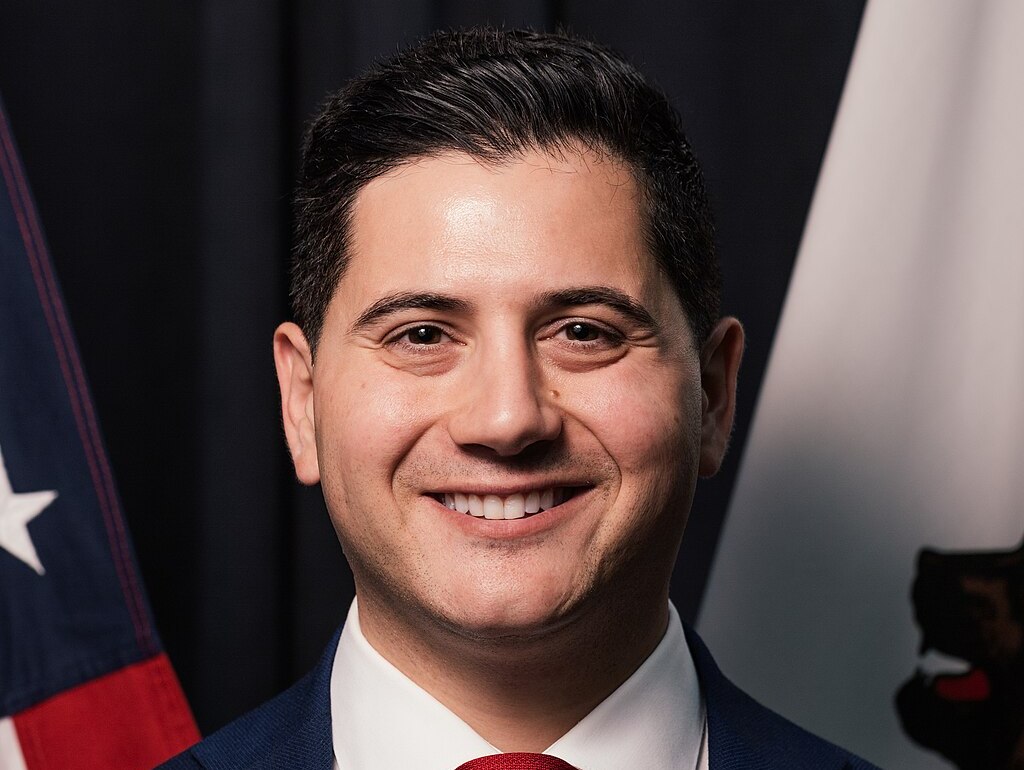[dropcap size=big]I[/dropcap]n a city where 50 percent of tenants are rent-burdened—paying 1/3 of their income in rent—and with restaurants, bars, events, and all gatherings of 10 or more people shut down due to the COVID-19 pandemic, millions of Angelenos are understandably worried about their ability to pay rent and make ends meet in the coming weeks and months.
For the average tenant, making sense of all this can be daunting. While there is currently no rent moratorium in place, the city attorney’s office could draft an ordinance by as early as tomorrow.
To alleviate concerns, last Tuesday, L.A.’s city council passed a motion to establish a city-wide moratorium on rent, during an unconventional and confusing eight-hour city council meeting that left the public outside on a 50-degree morning, while city officials met comfortably inside.
Here’s a breakdown of what could happen
First and foremost, the eviction moratorium is not a forgiveness plan, it’s a forbearance plan, meaning that renters will still be responsible for repaying backed rent.
“This order does not enable tenants to get out of paying rent.” Rushmore D. Cervantes, the General Manager of the Los Angeles Housing and Community Investment Department, clarified at Tuesday’s city hall meeting.
How long will renters have to pay backed rent?
Councilmember Bonin pushed for a 24-month repayment window but ultimately the city council amended the motion and decided that tenants will have six months to repay owed rent after Councilmembers Krekorian, Wesson and Koretz all argued that 24-months was unfair to landlords. Councilmember Lee introduced the amending motion to reduce the repayment period from 24 months to 6 months.
Financial disclosure documents obtained by Adrian Riskin of MichaelKohlhaas.org, reveal that at least eight out of 15 city councilmembers are landlords. Krekorian, who was one of the loudest opponents of Bonin’s ordinance, owns two rental properties along with his wife. They each gross somewhere between $10,000-$100,000 a year according to the documents.
“Everybody qualifies. There isn’t a person in Los Angeles whose life and income is not going to be impacted by Coronavirus.”
Herb Wesson, another opponent of Councilmember Bonin’s motion argued that a 24-month repayment plan would be unfair to “mom and pop landlords,” and urged the city council to include more voices in the conversation. “The only way we’re going to get through this is if we all work together. In order to get people to buy into that, they all need to have input.”
The council member representing the 10th council district said he wanted to hear from housing and immigration advocates as well as mom and pop landlords. “You have so many people that have spent their lives investing in an apartment and that is their retirement, they need to sit at the table.”
Wesson is, in fact, a “mom and pop landlord” according to the form 700 that he’s legally required to file. Wesson owns a rental property near Ladera Heights that also grosses between $10,000 and $100,000 per year.
In total, eight current city council members own rental properties including Krekorian, Wesson, Koretz, Price, Martinez, Ryu, and Huizar. Councilmember Mike Bonin, who fought hard for the original ordinance that would have given renters 24 months to pay back rent, disclosed on his Form 700 that his husband is the sole proprietor of a rental property near mid-city.
David Ryu and his sister bought a rental property in 2018 but immediately transferred ownership to an LLC owned by their brother. Ryu disclosed the four-unit rental property on his form 700 but denies receiving any rental income from it. On Tuesday, Ryu voted with Bonin against reducing the amount of time tenants had to repay landlords from 24 months to six months.
Price owns more properties than any other city councilmember with 13 units. Price, along with Wesson and Huizar, were all involved in an FBI search warrant last year and an investigation that earlier this month led to former city councilmember Mitchell Englander being indicted on charges of obstruction of justice. And last week, real estate consultant Justin Jangwoo Kim pled guilty to federal charges of bribery relating to the same investigation.
The moratorium as it stands now would put a halt to all evictions and late fees for tenants that are impacted by COVID-19, until the emergency declaration is lifted, including commercial tenants.
Under Governor Newsom's executive order, cities that create their own rent moratoriums must tie them to Coronavirus.
Krekorian, who represents parts of the San Fernando Valley, strongly supported limiting the ordinance to exclusively renters that were directly impacted by COVID-19 (ie: People that contract the virus).
Bonin argued, “Everybody qualifies. There isn’t a person in Los Angeles whose life and income is not going to be impacted by Coronavirus.” The councilmember said he wants to take the administrative burden out of tenants having to navigate a confusing system just to maybe find relief. “There are going to be landlords that are going to try to use this as an opportunity to force people out. If we craft too narrowly, we’re going to wind up with more people on the streets within a couple of weeks.”
Will vulnerable tenants like Julio Duran and his family be protected or will the city fail them again? The answer to this crucial question is undeniably parallel to the answer for the following ethical question: Should eight landlords be making that decision?
Two days after the city council meeting, Julio Duran was coming back from the grocery store when he got a notice that shocked him to his core. The street chef and father of five received a letter from his landlord, “We understand these are difficult times and that many people are frightened due to the crisis we are all facing.” In the letter, Duran’s landlord asks him to provide evidence that he cannot pay his rent, “Please send proof that your employment has been suspended or terminated and that such suspension or termination (or other reason) is directly caused by COVID-19, and we will consider whatever evidence you present.”
“It was shocking,” Duran told L.A. Taco.
His family has been hit hard by the coronavirus. “I mean at times like this I feel like if we ran out of money to pay the rent...we aren’t 100 percent certain where we will live.” Between housing instability and having to close down his taco stand following the city council’s decision to end the grace period for street vendors to obtain health permits, Duran is nervous for the future. “I’m trying to avoid any penalties and since we didn’t even have the chance to file for our permit, all the money that was going into our business got invested into food, supplies, bills, and the kids’ needs this month.”
“It was already difficult getting the permit, now imagine with this virus going around...it’s going to be nearly impossible.”
Duran’s landlord is pushing for full payment come the 1st of next month: “Even though there is a moratorium on evictions for the circumstances stated above, we strongly suggest that residents continue to pay their full rent."
Duran says they want proof of unemployment if he can’t come up with rent. “There are many families like mine where one of the adults is an immigrant. We don’t have access to disability or unemployment.”
Although landlords will eventually have to inform their tenants of their new rights, the ink on the new ordinance hasn’t even dried yet. As evident in Duran’s experience, predatory landlords are already finding ways to intimidate and harass tenants at a time when the entire world is in crisis and thousands of people are falling into unemployment in Los Angeles.
Ultimately, the city attorney’s office will be responsible for the important language—and subsequent exploitative loopholes—that defines who will benefit from this moratorium and who will be left out.
Will vulnerable tenants like Julio Duran and his family be protected or will the city fail them again? The answer to this crucial question is undeniably parallel to the answer for the following ethical question: Should eight landlords be making that decision?
The fate of up to two million Angelenos will be decided as early as city council meetings resume since as of the time of publishing this story, L.A. Taco has been notified that all meetings have been canceled for the time being.
Until then, renters are not protected.
Update as of 3/24/2020: Herb Wesson's office reached out to clarify that Wesson was one of the co-authors of the original motion. The councilmember said he would support a 24 month repayment window.
Update as of 3/23/2020: As of the Mayor's address today, rental units cannot be taken off of the market because of an ellis act eviction and all ellis act evictions have been temporarily halted. The Mayor did not elaborate on how the executive order would be implemented. Garcetti also reiterated that under his executive order on evictions, tenants that can prove they were directly impacted by COVID-19 can defer their monthly rent for up to 6 months. Visit HCID for more information.
